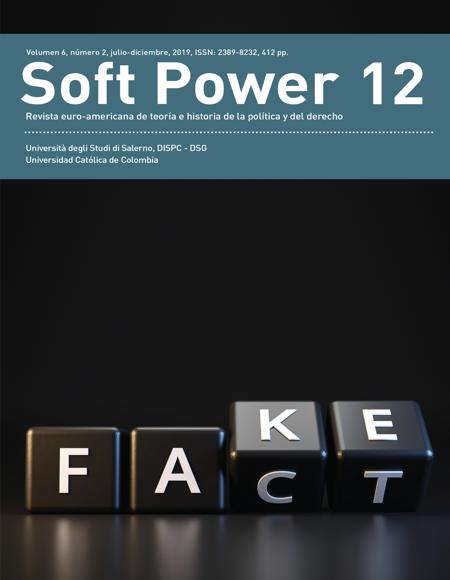Resumo
This paper, first published in German in Le Foucaldien 4(1) 2018 and in English in Le Foucaldien 6(1) 2020, explores Bruno Latour’s critique of contemporary critical theory. According to Latour, poststructuralist conceptions of critical inquiry are becoming increasingly outdated. In our “post-factual” era, attempting to expose facts as results of power-laden processes of social construction plays into the hands of anti-scientific obscurantists. This is not to say, however, that one ought to opt for some reductionist notion of objectivity. Instead, Latour proposes a new form of critical realism. While we agree with Latour about the necessity of widening our epistemological paradigm, we deem his critique of poststructuralism unfair and exaggerated. Moreover, we argue that he fails to account for the relationship between epistemology, power, and subjectivity. Since Foucault, on the other hand, succeeds where Latour falls short and probes into this very relationship, his is a form of critique that remains crucial to tackling the current crisis of truth.

Referências
Butler, J. (1990). Gender Trouble. Feminism and the Subversion of Identity. London/New York: Routledge.
Butler, J. (1993). Bodies That Matter. On the discursive limits of ‘sex’. London/New York: Routledge.
Foucault, M. (1982). The Subject and Power. Critical Inquiry 8, 4, pp. 777-795.
Foucault, M. (1997). What is Critique? In The Politics of Truth. Los Angeles: Semiotext(e), 41-82.
Foucault, M. (2001). Fearless Speech. Los Angeles: Semiotext(e).
Foucault, M. (2002). Power: The Essential Works of Michel Foucault 1954-1984. London: Penguin.
Foucault, M. (2008). Psychiatric Power. Lectures at the Collège de France 1973-1974. Basingstoke: Palgrave.
Foucault, M. (2010). The Government of Self and Others. Lectures at the Collège de France 1982-1983. Basingstoke: Palgrave.
Gabriel, M. (2016). Wider die postmoderne Flucht vor den Tatsachen. NZZ online, 19.6.2016. https://www.nzz.ch/feuilleton/fuenf-jahre-neuer-realismus-wider-diepostmoderne-flucht-vor-den-tatsachen-ld.89931.
Gehring, P. & A. Gelhard (Ed.) (2012). Parrhesia. Foucault und der Mut zur Wahrheit. Zurich: diaphanes.
Gros, F. (2011). Course Context. In M. Foucault: The Courage of the Truth. The Government of Self and Others II. Lectures at the Collège the France 1983-1984, pp. 334 - 358. Basingstoke: Palgrave.
Hampe, M. (2016). Katerstimmung bei den pubertären Theoretikern. Die Zeit 19.12.2016, 48.
Haraway, D. (1991). Simians, Cyborgs, and Women. The Reinvention of Nature. New York: Routledge.
Heidegger, M. (1971a). The Thing. In Poetry, Language, Thought. pp. 161-184. New York: Harper & Row.
Heidegger, M. (1971b). Building Dwelling Thinking. In Poetry, Language, Thought. pp. 141-160. New York: Harper & Row.
Heidegger, M. (1985). Being and Time. Oxford: Blackwell.
Heidegger, M. (2010). Country Path Conversations. Bloomington: Indiana UP.
Latour, B. (2000). Pandora’s Hope. Essays on the Reality of Science Studies. Cambridge, Mass.: Harvard UP.
Latour, B. (2004). Why Has Critique Run out of Steam? From Matters of Fact to Matters of Concern. Critical Inquiry 30, pp. 225-248.
Latour, B. (2012). An Inquiry into Modes of Existence. An Anthropology of the Moderns. Cambridge, Mass.: Harvard UP.
Moran, L. (1993). Evolution is a Fact and a Theory. The TalkOrigins Archive. Exploring the Creation/Evolution Controversy, 22.1.1993, http://www.talkorigins.org/faqs/evolution-fact.html.
Morris, H. M. (Ed.) (1974. Scientific Creationism. Prepared by the technical staff and consultants of the Institute for Creation Research. San Diego: Creation-Life Publishers.
Pennock, R. (2010). The Postmodern Sin of Intelligent Design Creationism. Science & Education, 19, 6-8, June 2010, pp. 757-778.
Posselt, G. & M. Flatscher (2016). Sprachphilosophie. Eine Einführung. Vienna: facultas/UTB.
Posselt, G. & S. Seitz (2018). Sprachen des Widerstands. Zur Normativität politischer Artikulation bei Foucault und Rancière. In O. Marchart & R. Martinsen (Eds.), Foucault und das Politische. Transdisziplinäre Impulse für die politische Theorie der Gegenwart. Wiesbaden: Springer.
Reynolds, J. M. (2010) On Creation and Post-Modernism. First Things, 18.32010, https://www.firstthings.com/blogs/firstthoughts/2010/03/on-creation-and-postmodernism.
Rheinberger, H.J. (1992). Experiment, Differenz, Schrift. Zur Geschichte epistemischer Dinge. Marburg an der Lahn: Basilisken-Presse.
Whitehead, A. N. (1995). The Concept of Nature. The Tanner Lectures Delivered in Trinity College November 1919. Cambridge: Cambridge UP.
Wikipedia. Objections to evolution. Last revised 3.5.2018, https://en.wikipedia.org/wiki/Objections_to_evolution.










